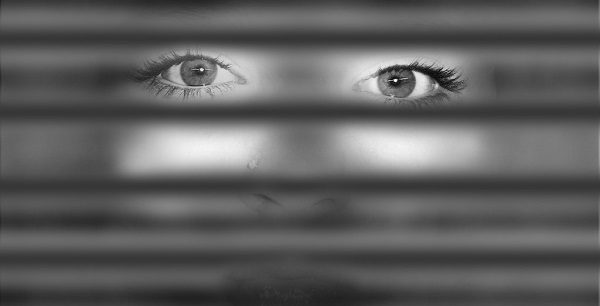
Racism doesn’t always look like rage; usually it looks like fear. I had a strange day yesterday. After hearing about the fact that the white cop who shot 12 year old Tamir Rice will not be prosecuted, I watched the Wayans brothers’ movie White Chicks for the first time with my best friend from high school who happens to be black. We both needed to laugh until we cried, though for very different reasons. I don’t know what to do with myself as a white man who not only feels horrified by my subtle racist instincts but also cashes in on all the progressive gold stars I get for talking about how horrified I am. For a white man to speak authentically about his own racism is impossible in the continuously posturing world in which we live.
So let me be honest and say something I’m not supposed to say. I empathize with the cop. I shouldn’t. It’s wrong. But I do. Because I’m white. I know what it’s like to nervously tap on the lock button in your car when you’re driving through the wrong neighborhood with the windows down because you don’t want to appear close-minded. I know what it’s like to nervously smile when you pass through a noisy hallway on your way to the school office to pick up your kid and you’re congratulating yourself that his presence in an 80% black school proves how much you’ve overcome your whiteness.
I don’t know what it’s like to hold a police revolver. But I know what it’s like to be nervous all the time for no legitimate reason at all. And it’s not just angry people who do horribly sinful things. I’ll bet if researchers ran statistics on it, they’d find that nervous people are a lot more likely. Nervousness is something that each of us needs to get addressed as individuals before we sin as a result, but it’s also something that white people are collectively responsible for embodying as a race in our shared angst over black people. My nervousness is part of a bigger hive of nervousness that really did have something to do with that Cleveland cop pulling the trigger on a little boy with a cap gun in less than two seconds.
I’m not sure how to shake off the need to prove that I’m not just another white guy, but there’s something about whiteness that instills a shame akin to the nakedness that freaked out the Biblical character Adam when he ate the fruit of the tree of knowledge of good and evil. We are constantly scrambling to pull together fig leaves to cover up this shame (our black friends, our NWA albums, etc.). Above all, we must never let it be revealed that any blessing ever came to us for any reason other than our merit. That’s why our version of the Christian gospel looks the way it does. We are constantly looking for ways to prove our devotion to God.
But speaking the most correctly of God with the greatest zeal is not the same thing as the trusting surrender that causes people to lose their nervous obsession with themselves, relax, and become hospitable to the rest of the population. Our white meritocracy is a closed loop that keeps on requiring bloodshed in Chicago and Yemen to prove its courage and infallibility. Because so few of us participate directly in the violence, it’s maddeningly insulting to be accused of what we understand to be a consciously bigoted way of thinking that we associate with anger, senility and abject ignorance.
In any case, the tragedy isn’t the masquerade ball that is my whiteness. The tragedy is that a little boy who was playing with a cap gun is dead. I have friends who were teaching their children yesterday how to shoot real guns. They’re wonderful people and I love them. I don’t even hate guns or have any real clue about what measures need to be taken to keep our society safe from gun violence. I just know that a black kid was playing with a cap gun no differently than I might have played with one on my grandpa’s watermelon farm twenty-six years ago, and the black kid is dead.
This horrible crime hasn’t been recognized, which makes its wrathful injustice echo with no less volume than Abel’s blood or the cries of the Israelites in Egypt. The real reason there can be no recognition of crime in this case is because the sin is collective. From an individualist perspective (which is not the real universe), the cop’s actions were in fact a “perfect storm of human error,” as the prosecutor said. In other words, the “kid” got nervous and he shot a much younger kid by accident.
The Washington Post yesterday shared that social scientists have shown that it’s common for white people to genuinely “see” black children “as older and less innocent” than they really are. Is it fair to hold someone responsible for a genuine delusion like this? Yes. Why? Because justice within a society should be measured in terms of the harm done, not just the intended outcome. Criminals are always operating under some degree of delusion as much as we want for every crime to be a deliberately immoral act for which blame can be measured with exactitude.
What we’re running up against is the inadequacy of the modern Western conception of justice. Because racism manifests itself as a collective sin that feels more like weakness than malevolence, even when a society’s racism commits murder through the “errors” of nervous individuals, it just doesn’t feel right to punish weakness and fear. So weakness and fear don’t get punished. And white Christians go to church and say that Jesus paid it all, so there’s no reason to confront the weakness that’s so shameful and confusing to name.
Just because I am helpless on my own to liberate myself from the nervousness about black people which might have made me participate more directly in their tragedy if I had followed a different career path doesn’t mean that I am not guilty of that sin. There’s a line from Psalm 65:3 that I often pray. It says, “My sins are mightier than me, but you have atoned for our sin.” It’s interesting the way that the Hebrew mixes first person singular and first person plural so interchangeably. It’s because all of ancient Israel sang all of their psalms as a common body, even the ones that spoke in first person singular. It’s because ancient Israel took collective responsibility for their sins and they believed that God atoned for their sin as a community.
When you pray a prayer like this, you’re not reminding God that everything is okay because it’s already been paid off by Jesus’ blood. You’re begging God to fulfill the atonement that has been promised in your pathetically weak and nervous heart. Because you’ve got Jesus’ blood on your hands, and like Lady McBeth, you can’t wash it off. You’re begging God to actually make you just by rescuing you from the prison of self-justification. When we genuinely trust in God’s grace, we lose our nervousness and defensiveness about every sin, including the ones that we don’t feel guilty about because they’re collective and hard to own personally with sincerity. To walk in God’s grace in the face of another people’s trauma requires assuming the posture of absolute humility and self-mistrust that can point the way to authentic empathy and healing.
If white people understood sin the way the Biblical psalms understand it, then we would be making reparations as a body with the families of Tamir Rice, Sandra Bland, Eric Garner, Michael Brown, and every other victim of our culture of racial nervousness. The thing that is so hard about sin is that it always involves some form of delusion in which we are never without self-justification. That’s why we need God to shatter our delusions of innocence by showing us through Jesus’ cross that he stands in solidarity with every unacknowledged victim of our sin which the modern mind will never be able to criminalize. As long as the cross is remade in the image of capitalism as our Heavenly Father’s limitless credit card that exists only to bail us out, it cannot convict us of our sin against the people we crucify through our “perfect storms of human error.”
I’m not sure what to do about racism other than be honest about the sinful instincts I have personally experienced and share the analysis that I believe I’m responsible for sharing with other white people. As a Christian, I honestly believe that the true gospel of God’s grace is the greatest antidote for white peoples’ racism, but it doesn’t work when white Christians manage to turn “grace” into a code word for something else just like we’ve turned “thug” into a code word.
So I can’t speak for other white people, but I can ask God to purge me of my prejudices and harmful instincts so that I am more hospitable to people of other races the way Jesus would be. I can ask God to heal me of the delusion of my “color-blindness” and the need to show everybody how much better I am at transcending my whiteness than every other white man. I can ask God to help me live under grace so that I’m able to stop posturing and assess my moral weaknesses with integrity.
I’m white. Tamir Rice is black. He’s dead. And I hate the impotence I feel about not being able to do anything concrete to make the world a place where this will never happen again.
















